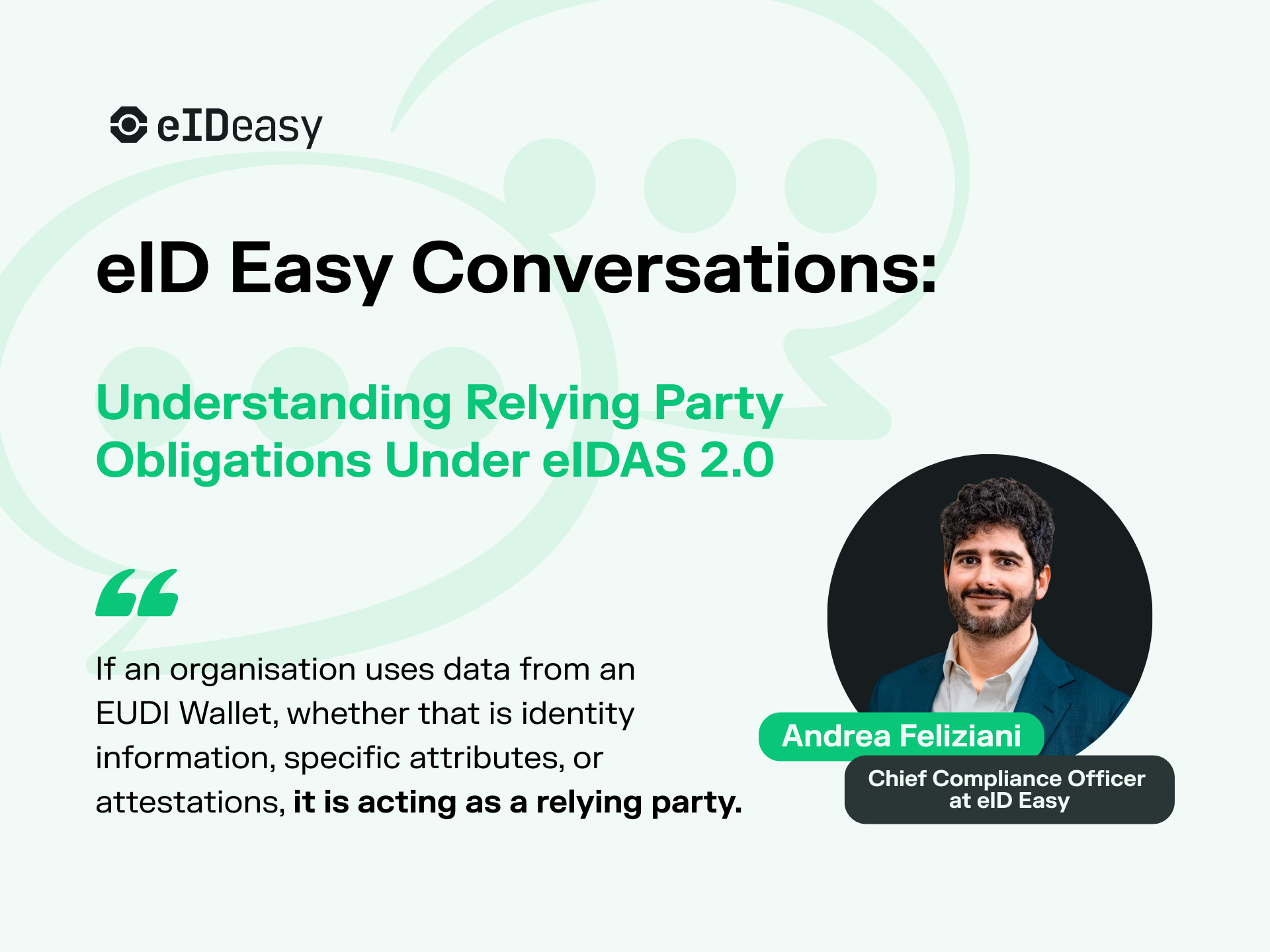We are pleased to share the latest developments of the eID Easy API Platform below.
*Please note that definitions of terms used in the newsletter can be found at the end of the document.
Latest Focus
eID Easy provides comprehensive and expanding coverage of eID and eSignature solutions through a single API. We’re continuing to expand this coverage while putting more focus on UX improvements and personalization options.
We’ll soon be introducing new designs, including detailed UX customization options that give you full control over which eID and eSignature methods appear in the UI and in what order. If you’d like an early look and a chance to share your thoughts, let us know — we’d be happy to give you a sneak peek.
As transaction volumes continue to grow, analytics and statistics are becoming increasingly important. We’re preparing additional transaction data on success rates and completion times, making it easier to spot outliers and take action if needed.
→ You’re also welcome to test out the eID Easy MCP server and share your feedback.
Recent Releases
Recently introduced signature solutions and features include:
- Added support for CZ MojeID, Swedish BankID, LT Mobile ID, and Evrotrust via OIDC
- Introduced Danish language support and MitID OIDC integration
- Upgraded JS libraries to Node 22 and Vue 3 for improved speed and compatibility
These updates bring faster integrations, broader coverage, and better local experiences for users across Europe.
Upcoming Updates (Short Term: 1–2 Months)
- SPID eID in Italy (already available in the development environment)
- Wider support for signature methods over the CSC API
- UI design updates
- eID and eSignature method ordering and visibility configuration in the UI
- Improved transaction statistics
Longer-Term Plans (Evaluation Stage, No ETA)
- CieID mobile app eID in Italy
- UAEPass eID and signatures (United Arab Emirates)
- Singpass eID and signatures (Singapore)
- ID-Austria eID integration
- Identity and signature configuration updates: improved ordering and filtering of signature methods
- Ongoing signature and identity flow redesign
Key Features Previously Released
- itsme® expansion - coverage now reaches 24 European countries with eID Easy
- Austrian Valera prototype (EUDIW) - available in the staging environment
- Evrotrust eID support - highest-coverage eID providers on our list
- Batch Signature – sign multiple documents with a single confirmation
- eSeals – automate signatures on behalf of a company without user interaction
- Adacom – one-shot, browser-based QES with no app or account required
- Mexico (NOM-151 Compliance) – essential for most major electronic signatures
- Austria (A-Trust Powered ID-Austria) – hash and batch signature support
- Freja eID – works with passports from 167 countries
- LT ID – Lithuania’s new government eID and QES app
- Nordic Countries – advanced XML hash-based signature support without certificates
New Feature Requests
We pride ourselves on our customer-centric business and are keen to ensure our product roadmap meets the needs of our growing customer base. For any additional feature requests or general feedback, feel free to contact us or schedule a call with our CPO, Margus Pala.
Stay in the Loop
Get our product updates straight to your inbox.
No spam — just one newsletter a month, usually in the first week.
Definitions used in this newsletter
Batch Signature – Allows multiple documents to be signed in a single session with one confirmation.
eSeals – Automatic signatures applied on behalf of a company without signer interaction.
Evrotrust – A Qualified Trust Service Provider (QTSP) providing remote identification and signing services.
JavaScript UI Components – User interface tools provided by eID Easy for integrating digital signing and authentication into web applications.
MCP Server (Model Context Protocol Server) – A solution to simplify signature collections in AI-driven systems and automated workflows.
OIDC (OpenID Connect) – An identity layer on top of the OAuth 2.0 protocol that allows clients to verify a user’s identity based on authentication by an authorization server.
QES (Qualified Electronic Signature) – The highest level of electronic signature validity, meeting EU standards.
SPID (Sistema Pubblico di Identità Digitale) – Italy’s public digital identity system, enabling users to access online services with certified eIDs.
USB Token / Smart Card – Physical devices used to securely store digital certificates for electronic authentication and signing.
Valera – Austria’s EU Digital Identity Wallet prototype, used in the development and testing of digital identification flows within the EUDIW framework.


